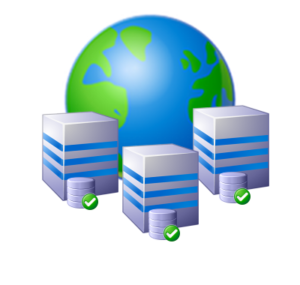Geographic Redundancy Security and Your ERP
- 2W Tech
- 2W Technologies
- Buffalo
- Chicago
- Cleveland
- Cloud
- Cloud Computing
- Cloud ERP
- Cloud ERP Deployment Options
- Cloud Solutions
- Cloud strategy
- Cloud Technologies
- Cloud-based software
- Data Recovery
- Data Security
- Disaster avoidance
- Disaster Recovery
- Epicor
- Epicor 10
- Epicor 10.1
- Epicor 9
- Epicor Cloud
- Epicor Cloud ERP
- Epicor Consultant
- Epicor ERP
- Epicor ERP Consultant
- Epicor ERP System
- Epicor Implementation
- Erie
- ERP
- ERP Consultant
- ERP Deployment
- ERP Implementation
- ERP Installation
- ERP integration
- ERP strategy
- ERP System
- Geo Redundancy
- Geographic Redundancy
- IL
- Illinois
- IN
- Indiana
- IT Consultant
- Manufacturer
- Manufacturing
- Meadville
- Microsoft
- Microsoft Azure
- Microsoft Office
- Milwaukee
- New York
- NY
- OH
- Ohio
- Outsourced IT
- PA
- Pennsylvania
- Pewaukee
- Upgrading Epicor
- Upgrading ERP
- WI
- Wisconsin
Microsoft Azure Blog Series
With Ransomware making the headlines so frequently over the last year, with natural disasters such as the flooding in Texas happens, data security has become the top concern businesses are facing today. Your ERP system is the heart of your organization’s technology and the keeper of your most important data. Protecting your data is not an easy task, especially since there are hundreds of various solutions offered. It is not easy to choose a solution and it’s not easy to understand all the different ways and areas of your business you need to secure. Many cloud providers are using geographic redundancy to secure your data, and if you have deployed a cloud ERP system, your ERP data as well.

Simply put, geographic redundancy is operating at more than one geographic location, as a form of redundancy in case one site fails. Today’s cloud providers may eliminate server-level points of failure, but they don’t all have an answer for data center or city-level points of failure. If a cloud provider uses a single datacenter with no data replication to other diverse locations, then there is no ability to recover from a geographic event. You need a provider that has multiple datacenters, can successfully transition operations from one datacenter to the other, and do so without any disruption to your business. Geographic redundancy is disaster avoidance and by employing this method, you are getting your organization ahead of needing a disaster recovery solution. Microsoft Azure’s geographic redundancy allows for automatic failover between data centers of mission critical services including applications, databases, and websites to multiple remote datacenters. This failover happens between cities at the server and network level, without changing IP addresses, and with no human intervention whatsoever. This allows for zero detectable downtime.
The Azure Platform is supported by a growing network of Microsoft-managed datacenters. Microsoft has decades of experience running services such as Bing, Office 365, and Outlook.com. Microsoft has invested $15 billion (USD) in global datacenter infrastructure and Azure is already available in 140 countries. There are many benefits Microsoft Azure can bring to your organization and these benefits can extend to your Epicor ERP system as well. Running your Epicor ERP system on the Azure cloud will allow for you to no longer maintain equipment on your existing servers and minimize your footprint locally, instead focusing that time on your customers. 2W Tech is a Tier I Microsoft Cloud Solutions Provider and a Certified Epicor ERP Partner and can help you manage your Epicor ERP system on the Azure cloud. Give us a call today to learn more benefits your organization can gain by making this deployment switch.
Read More:
Kiss Your Hardware Goodbye
Microsoft Azure: Game Changer for Epicor ERP
Finding Success in the Cloud
Enjoyed reading this article? Click the button below to download this asset.